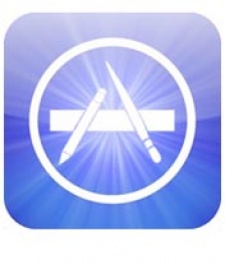Ending the first day of the first International App Development Conference (aka AppCon) in Dundee, we had a panel session called Today's App Market, Tomorrow's Unknown, which for better (or perhaps worse) was moderated by one Jon Jordan of PocketGamer.biz infamity.
Yet, thanks to a quality panel consisting of Russell Kay, CTO of YoYo Games, Richard Joos, a mobile user experience expert, Lyan van Furth of Moblio (and Vuvuzela 2010 app fame), and Paul Farley, MD of Tag Games, and questions from the audience, we managed to pin down some significant points.
1. There are a lot of app stores. There are going to be a lot more
Once upon a time there was the App Store. Now we have to call it the Apple App Store.
Now there's also the Android Market, the Windows Market, Ovi store (Nokia), Samsung Apps store, BlackBerry App World, Palm's App Catalog, GetJar, PocketGear, Handango, plus all the carriers' app stores, plus the soon-to-launch Adobe's InMarket, Intel's AppUp, Amazon's Android store, and no doubt a dozen more.
For this reason, content will still gravitate to the Apple App Store, because it's the cleanest, easiest and biggest app store, but real success for most content companies will come as they earn additional, if marginal per store, revenue releasing on all the others.
Cross platform deployment will be the most important thing for content developers in 2011.
2. Flash mob
App stores are boring. Whether defined by device, operator, retailer or other brand, they are also restrictive. To overcome this fragmentation, you must deploy the amorphous concept of community.
Community is a fairly meaningless term used by journalists and marketing managers to define a group of people who could have a common interest, but might not yet be aware of the fact.
The good thing about this amorphous group however, is they can very quickly, and for short periods of time, be converted into a buying mob, which, like a wave, will overcome the restrictive barriers of app stores, encouraging more of their acquaintances to buy your hot, hot, hot game in the process.
Make communities love your game.
3. The app store isn't your enemy. It can be your friend
Most game (or app) developers thinks discoverability on app stores is their major problem.
This is looking at the problem the wrong way around however. Instead, visibility on any app store is the result of your success when it comes to promotional activities elsewhere.
An app store should be viewed purely as a fulfillment channel; a frictionless mechanism by which people who want your game, get your game. In this context, an app store is the method by which your success in terms of traditional PR and marketing, viral community effort, branding, price promotion and the sheer brilliance of your idea is revealed.
An app store has never killed any business. Even the worst app store has the potential to be your personal one-armed bandit jackpot. To-date you've just pulled the wrong levers.
4. Brands are the impressive skeletons of previous successes
Apple's App Store - and by default hence all others - seems to be moving away from big console brands. There's no Halo, Modern Warfare, Medal of Honor, Fable or Tomb Raider. They invoke the wrong colour financials when it comes to return on investment as EA Mobile's 4 percent drop in quarterly sales demonstrates.
No. App stores love the brands created within them - Angry Birds, Cut the Rope, Parachute Panic, Fruit Ninja, Paper Toss, Words With Friends, Bejeweled.
Once you have created a mobile brand - or using this metaphor, stumbled on a skeleton of a long dead beast - you can continue to reskin it in as many app stores as possible. People will be impressed, if not by its vitality (brands by their definition are dead, yet highly profitable) then by the publicity it entails, and its solemn bone-white reassurance.
5. It's increasingly hard to argue with free
Most developers are now positively enthusiastic about releasing their game for free.
They've experienced the pain of pouring their heart into a game they love and then seeing it fail because people won't buy it, even at 99c. Of course, things may change in future, but for the next six months or so, free games (whether monetised via ads or in-app purchases), are the default option when it comes to all app stores.
So, if - for whatever reason - you're not planning on releasing a freemium game, your audience - on whichever app store - will likely be playing such, and hence are unlikely to be playing your game.
Think about it.
Opinion: 5 steps to successfully moving from today's app store into tomorrow's unknowns
What we learnt from AppCon 2010





















